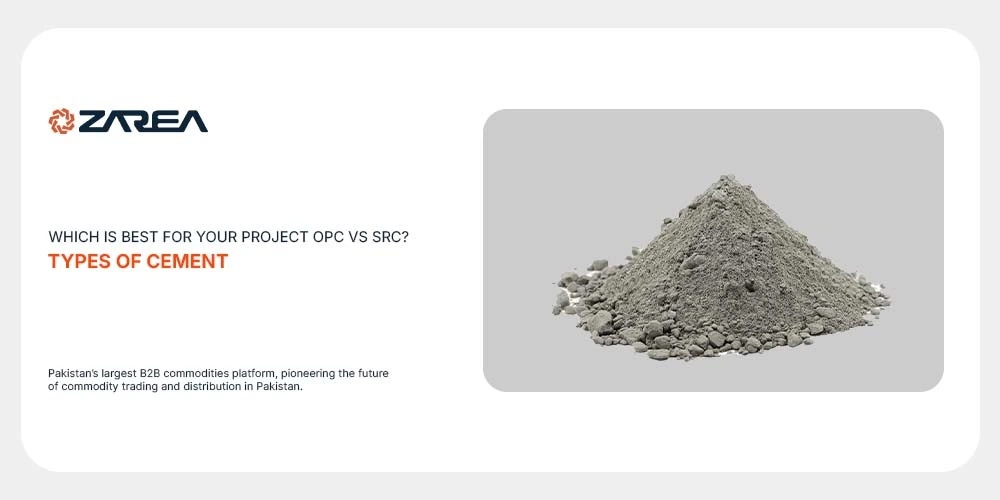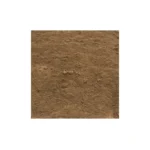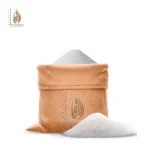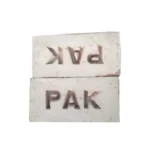Introduction – OPC vs SRC:
Whenever you plan any kind of construction project, the choice for types of cement have long-term effects on it. As we all know, cement is the foundation for structural strength, longevity, and durability whether it’s a residential, commercial, and infrastructure project. On the other hand, Ordinary Portland Cement (OPC) and Sulphate-Resisting Cement (SRC) both play different roles. Meanwhile each of them has different applications in the construction field and they are more than just a bonding agent. So, these two types are the most widely used cement types currently on the market.
Understanding the characteristics and differences between these two cements is an essential part of the discussion these days. These characteristics make them an informed and cost-effective choice for your specific project.
Why Selecting the Correct Cement Is Important:
You only have one chance to choose the ideal cement for your project. It’s a one-way trip and there is no turning back once you have applied and allowed it to cure. If you are selecting an wrong kind of cement, or even one of inferior quality, it can cause major structural problems such as:
- Concrete cracking early on
- Structural integrity loss
- Decreased capacity to support loads
- Expensive upkeep and repair expenses
- Reduced longevity of the structure
- Possible risks to safety because of instability
On the other hand, the proper kind of cement guarantees a long-lasting foundation, increases its strength, and resists environmental damage. Therefore, in addition to budget a number of factors influence the decision between OPC and SRC. Which may include project type, environmental conditions, and durability requirements.
Visit Zarea now to view product listings, place bulk orders, and receive the greatest discounts! It is the largest business-to-business (B2B) commodities marketplace in Pakistan and is setting the standard for future commodity distribution and trade in the nation.
What Is Ordinary Portland Cement (OPC)?
Ordinary Portland Cement, or OPC is the most common type of cement that is used in general construction. It is divided into three grades: 33, 43, and 53. These grades are generally based on their most compressive strength and ability.
Important OPC Features:
- High starting power
- Quick hardening and setting
- Ideal for all-purpose concrete construction
- Perfect for roads, bridges, dams, and buildings
- Cost-effective and widely accessible
When to Use OPC:
In settings with low to moderate chemical exposure, you are engaged in hectic construction projects. It is also a popular option for projects like precast buildings or fast repairs that call for early strength development.
What Is Sulphate Resisting Cement (SRC)?
Resistant to Sulphates Cement is specifically designed to withstand the destructive consequences of sulphate attacks, which frequently take place in regions with groundwater or soil that is high in sulphates. Tricalcium aluminate (C3A), the substance most vulnerable to sulphate damage, is present in smaller quantities in SRC than in OPC.
Key Features of SRC:
- High resistance to sulphates is one of SRC’s primary characteristics.
- lowers the possibility of deterioration brought on by chemicals
- Ideal for basements and foundations in marshy or coastal locations
- improves durability over time in harsh environments
Use SRC When:
When your project site is near seawater, sulphate-rich soils, or industrial waste, use SRC. This covers water treatment facilities, coastal buildings, sewage systems, and marine structures.
A Comparative Analysis of OPC and SRC:
| Feature | OPC (Ordinary Portland Cement) | SRC (Sulphate Resisting Cement) |
|---|---|---|
| Composition | High C3A content | Low C3A content |
| Strength Development | Fast | Moderate |
| Chemical Resistance | Low to moderate | High (especially to sulphates) |
| Best Suited For | General construction | Coastal & industrial environments |
| Cost | More economical | Slightly more expensive |
How to Pick the Ideal Cement Type for Your Project:
When deciding between OPC and SRC, or any other kind of cement, take into account the following:
Conditions of the Environment:
SRC provides long-term protection if your site is in a marshy, coastal, or chemically aggressive environment.
Construction Speed:
OPC is a better choice for projects that require early strength and a rapid turnaround.
Spending limit:
Even though OPC is less expensive, if it is used in an inappropriate setting, the long-term maintenance costs may outweigh the initial savings.
Needs for Structure:
Specialised cements like SRC or others like PSC, PPC, or Rapid Hardening Cement may be advantageous for high-rise buildings, water-retaining structures, or those subjected to temperature fluctuations.
Final Thoughts:
It’s true that you can’t use the same type of cement for every building project. Meanwhile, Sulphate Resistant Cement becomes crucial in situations like where chemical exposure jeopardizes structural integrity. On the other hand, regular application requires OPC, because it’s still a dependable and adaptable option for these kinds of requirements.
Be aware of the different types of cement and their unique benefits as we discussed above. This way you can avoid expensive mistakes and extend the life of your structure. It may also guarantee the structural safety of your project. Before making a decision make sure to always get advice from material specialists and structural engineers. It is, after all, the cornerstone of your project and your mental stability to do all the safety measures.
FAQ’s:
What is OPC and PPC cement?
OPC is composed of a mixture of finely crushed, powdered limestone (62–67%), silica (17–25%), alumina (3–8%), and gypsum (0.1–0.3%). PPC cement, on the other hand, combines clinker with pozzolanic elements such as fly ash (up to 35%) or volcanic and gypsum (4%).
How many types of cement are there in Pakistan?
The most accessible type of cement is Ordinary Portland Cement (OPC). Meanwhile the other cements are based on regional availability. Which may differ for other types like Portland Pozzolana Cement (PPC), Sulphate Resistant Cement (SRC), and White Cement.
Is PPC cement 43 grade?
PPC Cement does not have any grades. In contrast, OPC Cement offers grades like 33, 43, and 53. On the other hand, PPC cement is thought to be just as strong as OPC 33 grade cement. Its grade strength is 330 kg per square centimetre.
What is cement grade?
Cement grades are classifications that show the cement’s composition and strength. They calculate the cement’s maximum compression strength (in megapascals, or MPa) after a predetermined amount of time, typically 28 days.
Which cement is strong?
It’s because of its extra strength and versatility OPC is the best material of choice according to major construction projects. Moreover, its reputation for strength, durability, and workability makes it an excellent choice for a range of construction applications. It is frequently utilised in the construction of roads, bridges, buildings, and other structures.


































